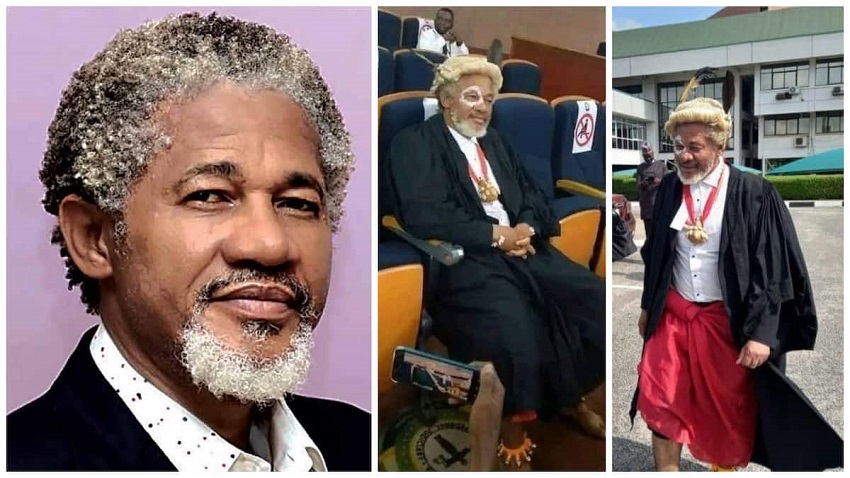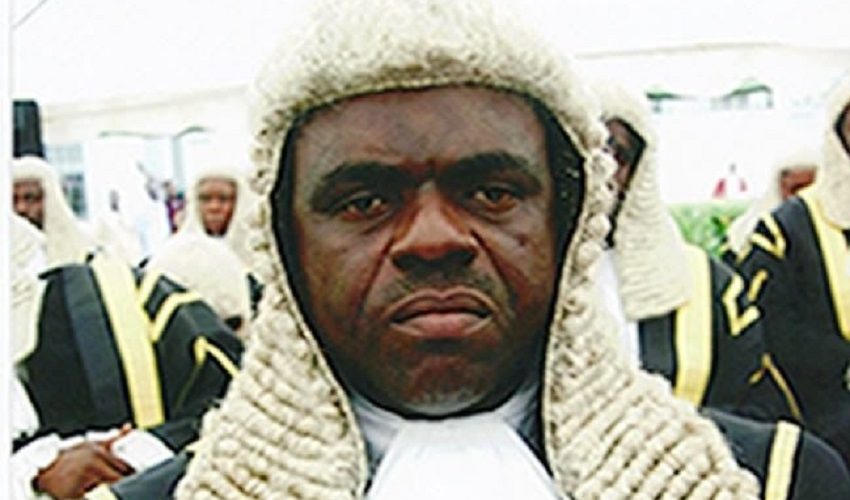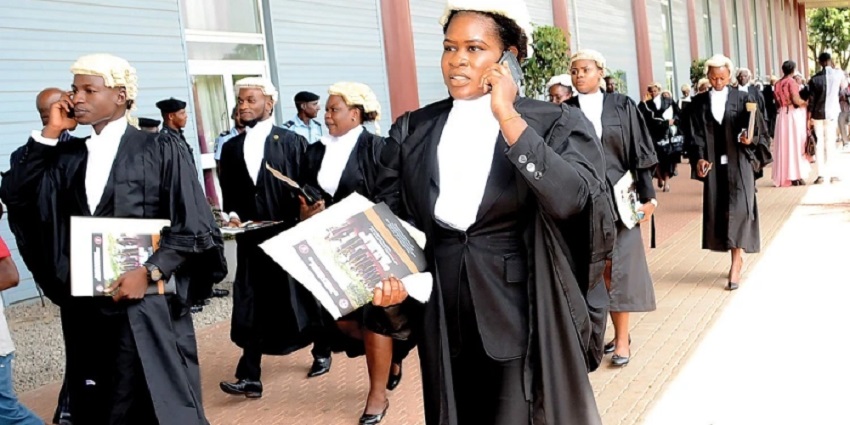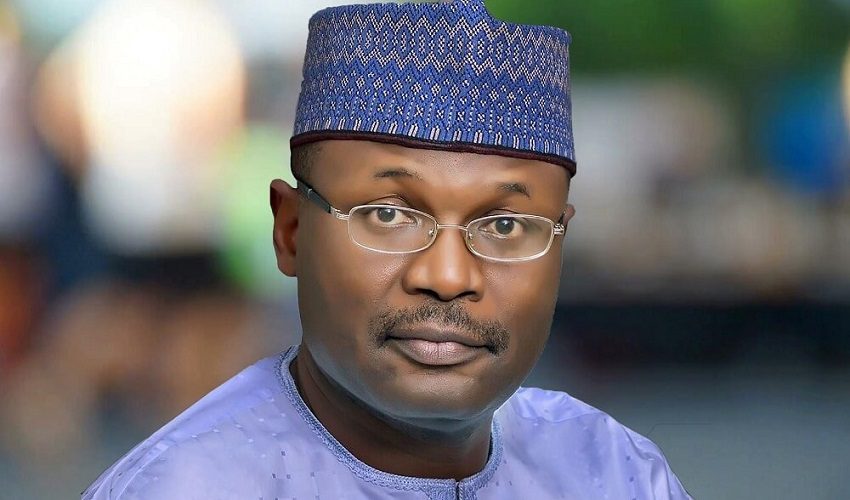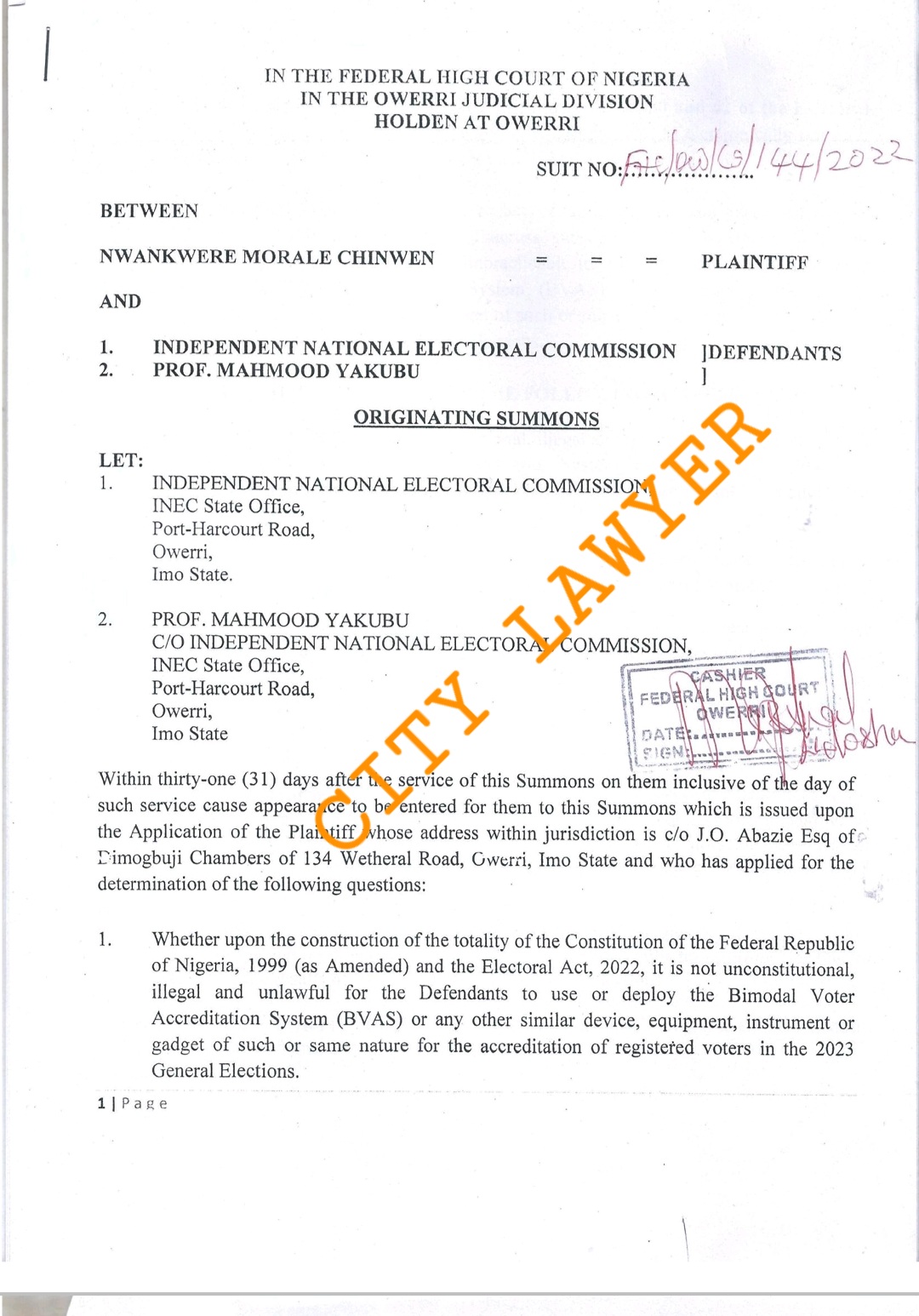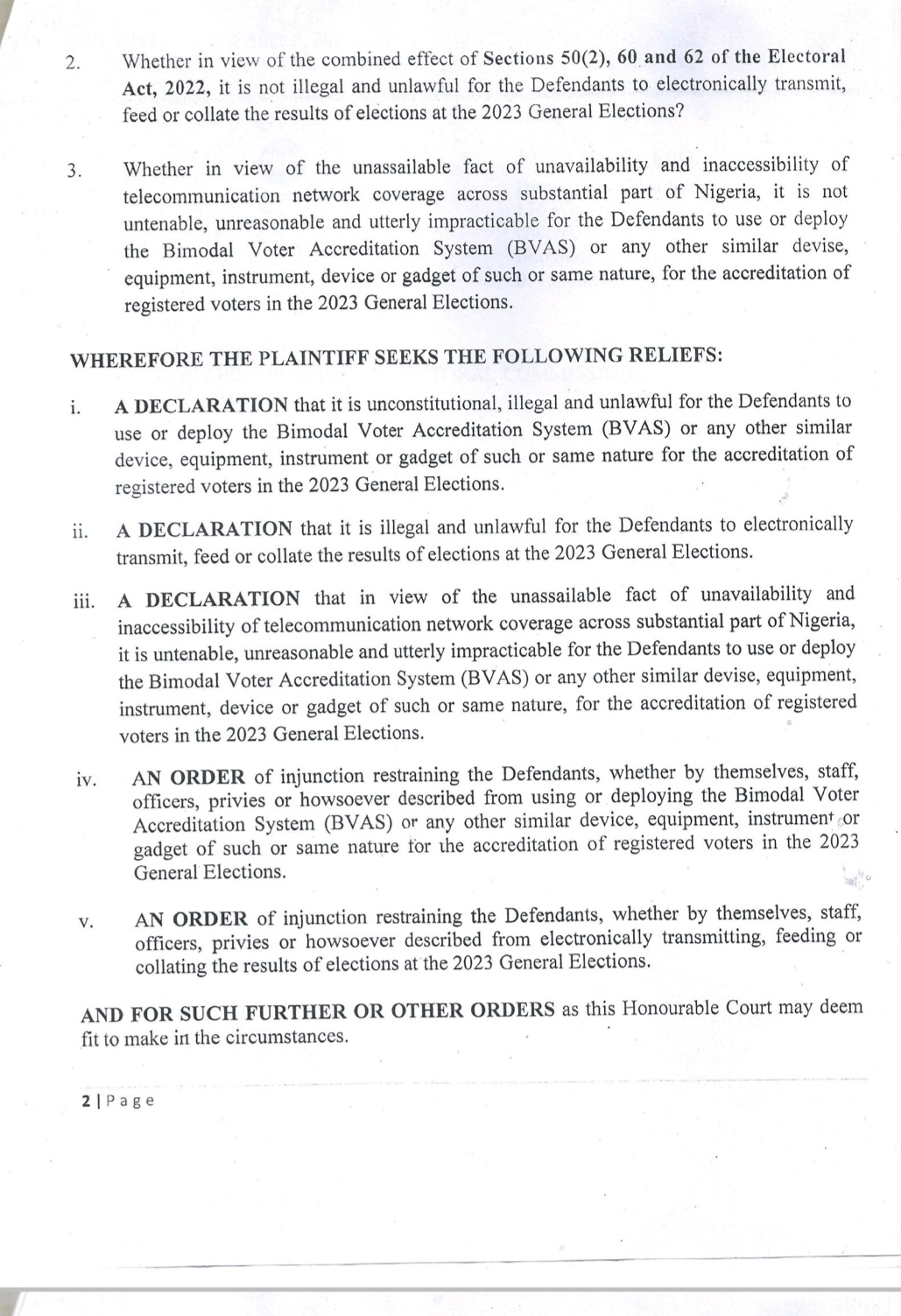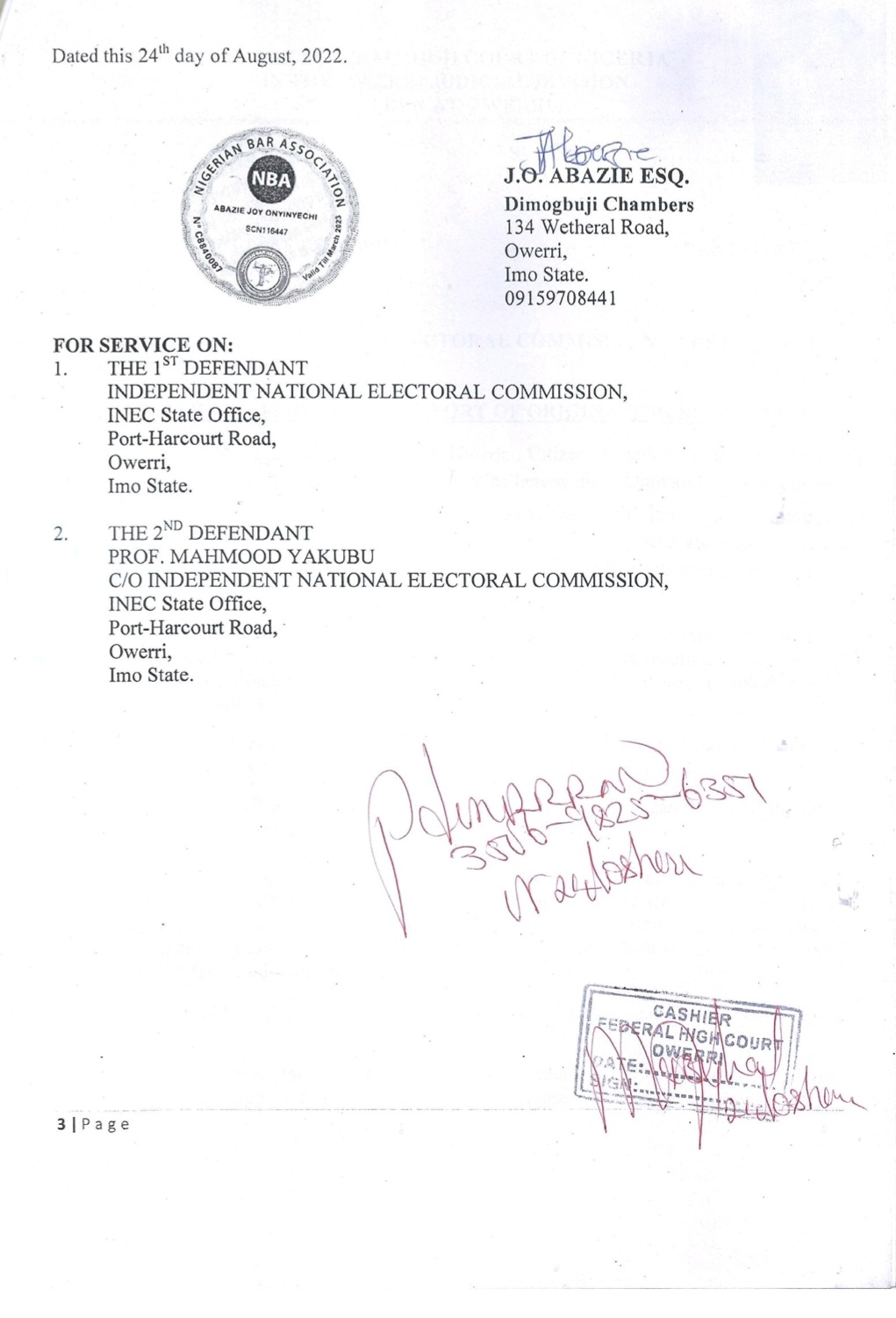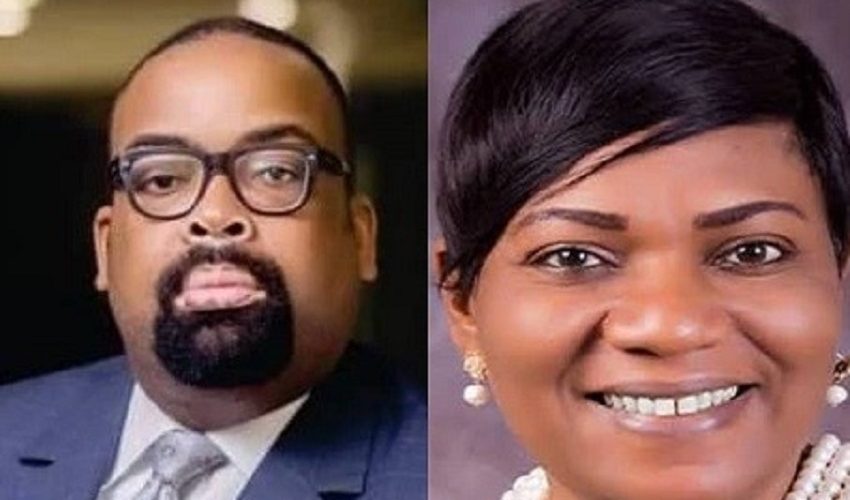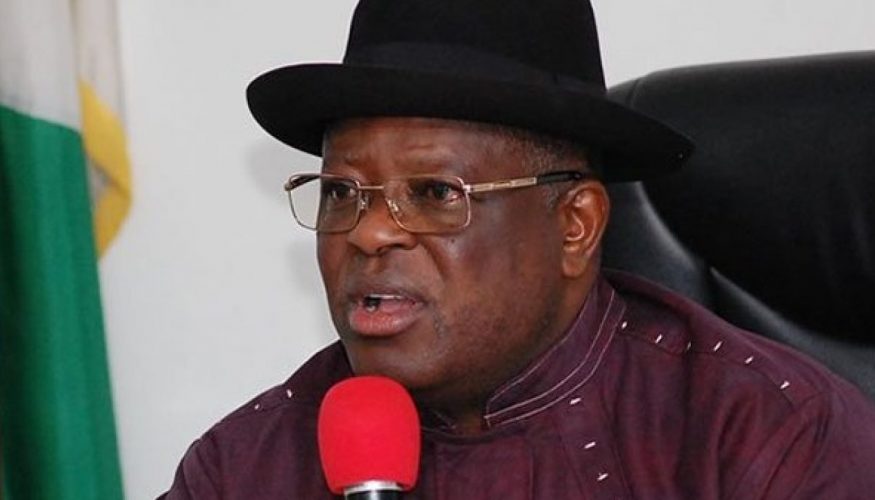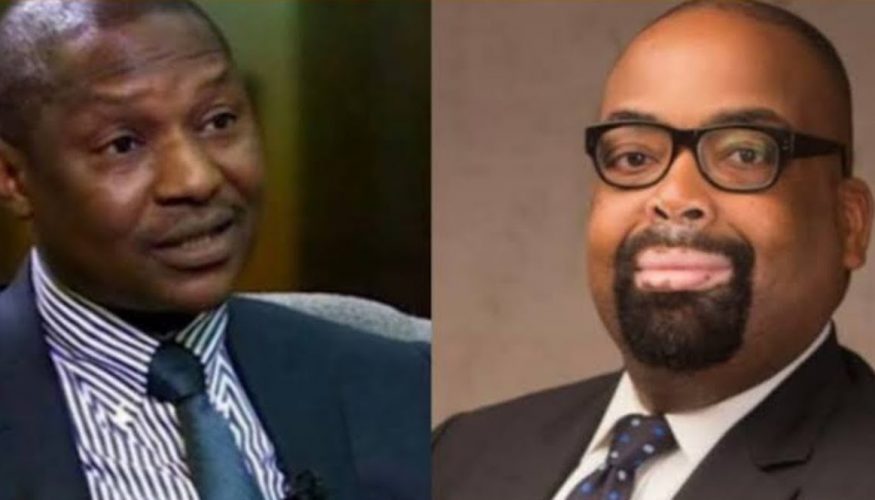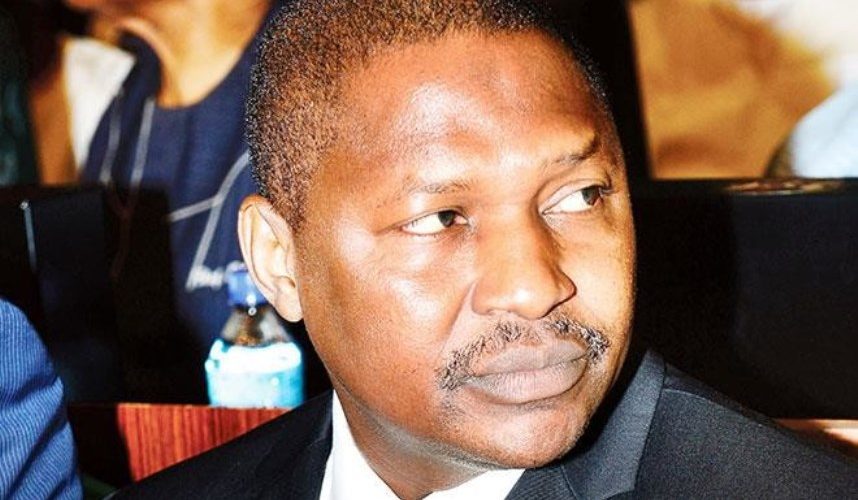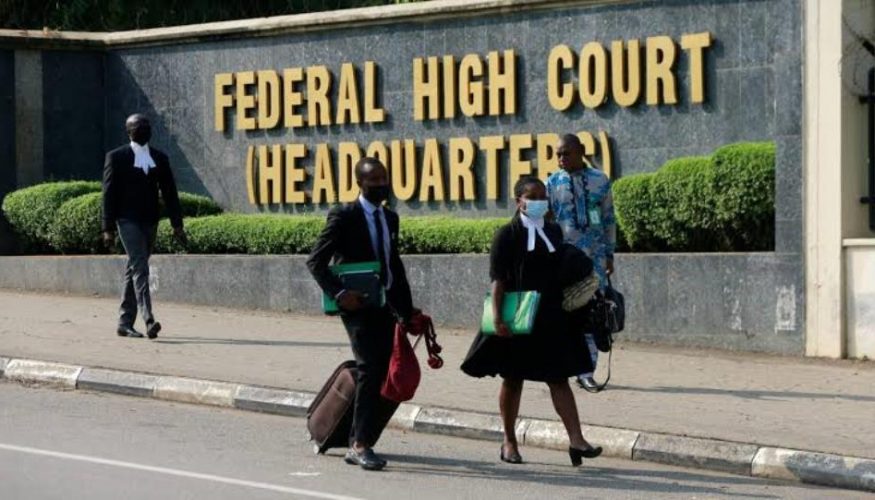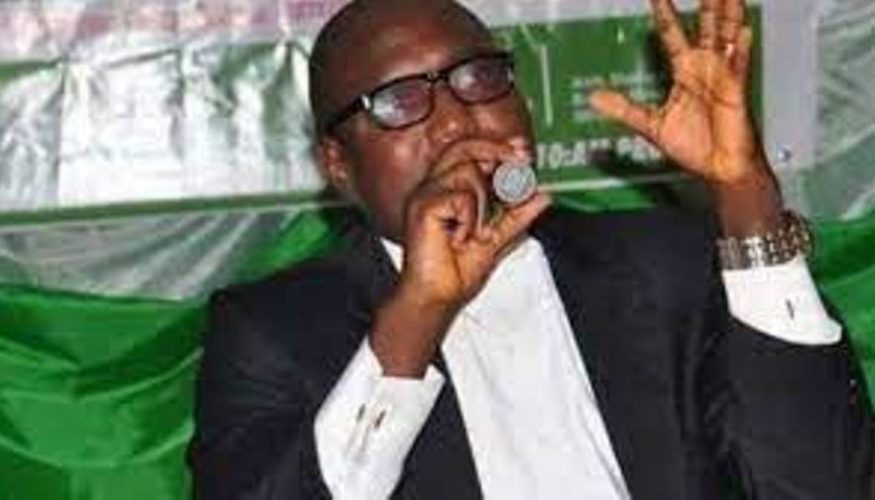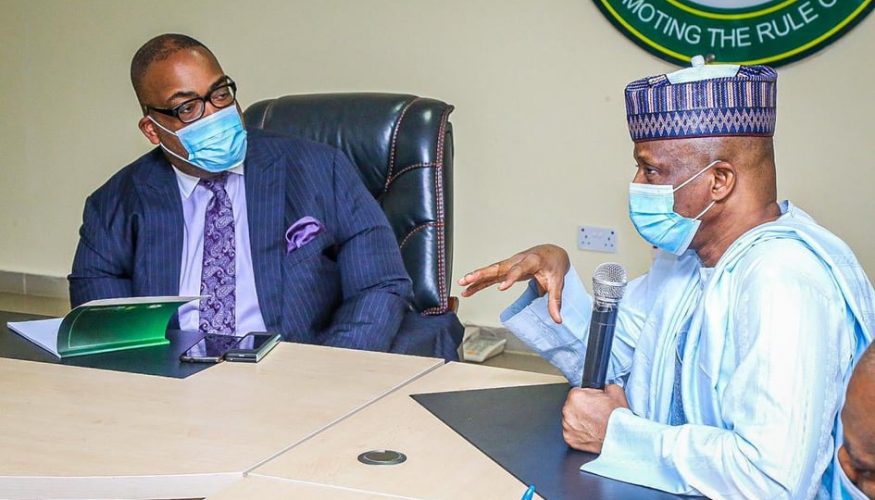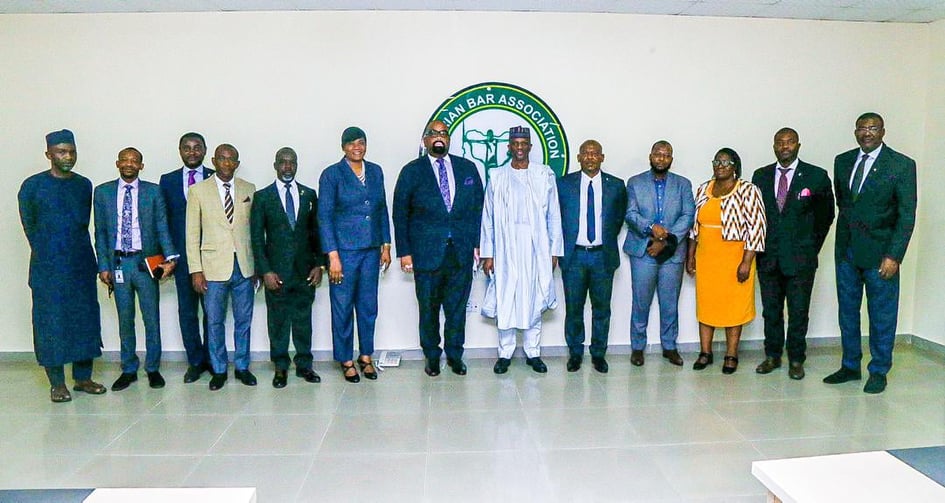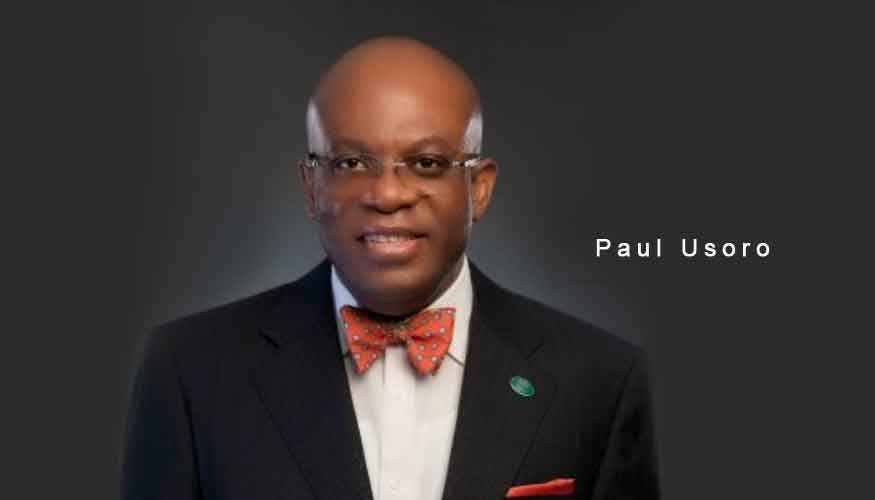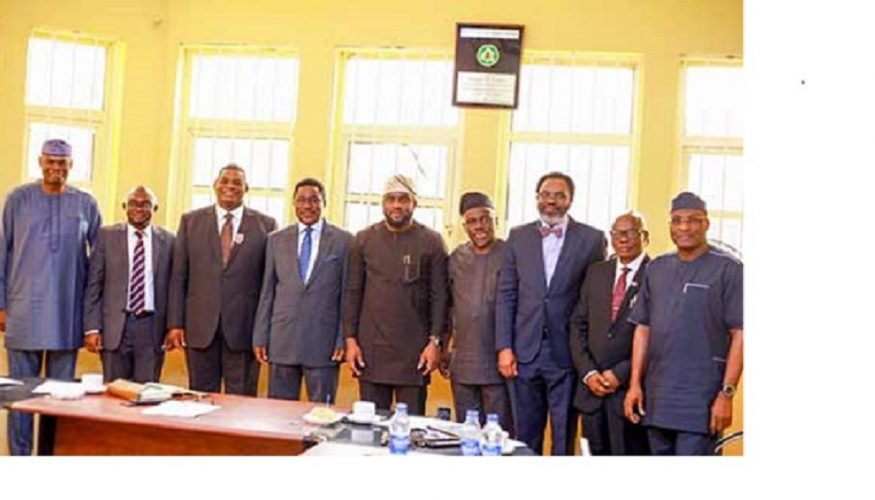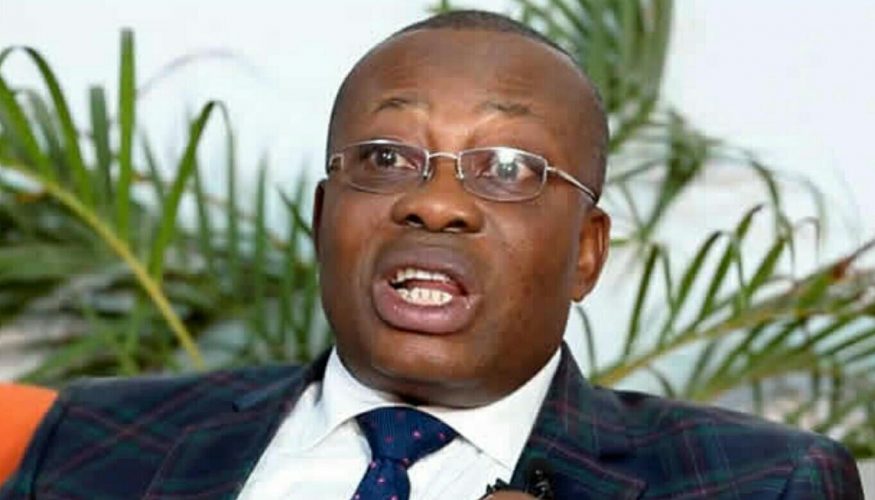BY EMEKA NWADIOKE
-
CONFIRMS CITY LAWYER REPORT
Echoes of the election that brought outgoing Nigerian Bar Association (NBA) President, Mr. Paul Usoro SAN has reverberated as the Economic and Financial Crimes Commission (EFCC) may soon arraign suspects in the controversial election.
Filed as Suit no FHC/L/118c/2020, the EFCC is, according to GAVEL INTERNATIONAL accusing the duo of Sarah Omeigha Ajibola, and John Ozovehe Demide of allegedly rigging the August 2018 NBA Elections in favour of Usoro .
The charge confirms CITY LAWYER exclusive report that “The Economic and Financial Crimes Commission (EFCC) may have swooped on senior lawyer and Nigerian Bar Association (NBA) administrative lynchpin, Sarah Ajijola over an alleged cash payment received from one of the presidential candidates in the last elections.
“An impeccable source who is familiar with the EFCC investigations told CITY LAWYER that Ajijola, NBA’s Director of Membership & Bar Services, was pulled in by the anti-graft agency for questioning over a N25,000 inflow into her bank account in the run-up to the controversial 2018 NBA Elections.
“The EFCC is investigating the outcome of the elections following an alleged petition by Mr. Olumuyiwa Olowokure who was an agent to Chief Arthur Obi Okafor SAN, one of the presidential candidates in the elections. Olowokure is now deceased.”
According to latest report, the charge has been filed at the Federal High Court, though the arraignment has been stalled by the coronavirus pandemic crisis.
The charges were reportedly filed on May 5, 2020 and signed by EFCC prosecutors led by Mr Rotimi Oyedepo Iseoluwa and including Bilikisu Buhari Bala, Usman Umar Buhari, Mohammed Abbas Omeiza, Suleiman I. Suleiman, and Kufre Uduak on behalf of the Executive Chairman of EFCC.
Below are the charges:
COUNT-1
That you, Sarah Omeigha Ajibola and John Ozovehe Demide sometime in August 2018, within the Jurisdiction of this Honourable Court conspired amongst yourselves to knowingly alter the email addresses and phone numbers of about 1004 (One Thousand and Four) eligible voters of the Nigerian Bar Association 2018 elections with the intention that such inauthentic data will be acted upon as genuine during the said election and you think thereby committed an offence contrary to Section 27 (1)(b) of the Cybercrime ( Prohibition, Prevention etc) Act, 2015 and punishable under Section 13 of the same Act.
COUNT-2
That you, Sarah Omeigha Ajibola and John Ozovehe Demide sometime in August 2018, within the Jurisdiction of the Honourable Court aided the commission of an offence to wit: to knowingly alter the email addresses and phone numbers of about 1004(One Thousand and Four) eligible voters of the Nigerian Bar Association 2018 National elections with the intention that such inauthentic data will be acted upon as genuine during the said election and you thereby committed an offence contrary to Section 27 (1)(b)of the Cybercrime (Prohibition, Prevention etc) Act 2015 and punishable under Section 13 of the same Act
COUNT-3
That you, Sarah Omeigha Ajibola and John Ozovehe Demide sometime in August 2018, within the Jurisdiction of this Honourable Court knowingly altered the email addresses and phone numbers of about 1004 (One Thousand and Four) eligible voters of the Nigerian Bar Association 2018 National elections with the intention that such inauthentic data will be acted upon as genuine during the said election and you thereby committed an offence contrary to and punishable under Section 13 of the Cybercrime (Prohibition, Prevention etc) Act,2015.
COUNT-4
That you, John Ozovehe Demide sometime on the 19th of August 2018, within the Jurisdiction of this Court fraudulently used the unique identification features such as Name and Supreme Court Enrolment Number SCN043280 of one Gabriel Abijo Oladipo to vote as the same Gabriel Abijo Oladipo through your Smile modem on IP address 169.159.65.190 to vote with intent of gaining electoral advantage in favour of Mr. Paul Usoro (SAN) who was one of the Presidential Aspirants during the 2018 Nigerian Bar Association elections and you thereby committed an offence contrary to and punishable under Section 22(2) of the Cybercrime (Prohibition, Prevention etc) Act, 2015 under the same section.
COUNT-5
That you, Sarah Omeigha Ajibola and John Ozovehe Demide sometime on the 19th of August 2018, within the Jurisdiction of this Court aided the commission of an offence to wit: fraudulently using the unique identification features such as Name and Supreme Court Enrolment Number SCN043280 of one Gabriel Abijo Oladipo to vote as the same Gabriel Abijo Oladipo through the Smile modem on IP address 169.159.65.190 to vote with the intent of gaining electoral advantage in favour of Mr. Paul Usoro (SAN) who was one of the Presidential Aspirants during the 2018 Nigerian Bar Association National elections and you thereby committed an offence contrary to Section 27 (1)(b) and punishable under Section 22 (2) of the Cybercrime ( Prohibition, Prevention etc) Act, 2015.
COUNT-6
That you, John Ozovehe Demide sometime on the 19th August 2018, within the Jurisdiction of this Honourable Court fraudulently impersonated one Gabriel Abijo Oladipo with Supreme Court Enrolment Number SCN043280 by voting as such through your Smile modem on IP address 169.159.65.190 to vote with the intent of gaining electoral advantage in favour of Mr. Paul Usoro (SAN) who was one of the Presidential Aspirants during the 2018 Nigerian Bar Association National elections and you thereby committed an offence contrary to and punishable under Section 22 (2) of the Cybercrime ( Prohibition, Prevention etc ) Act, 2015.
COUNT-7
That you, Sarah Omeigha Ajibola and John Ozovehe Demide sometime on 19th August 2018, within the Jurisdiction of this Honourable Court aided the commission of an offence to wit: fraudulently use the unique identification features such Name and Supreme Court Enrolment Number SCN088449 of one Uthman Adeleye Oluwaseun to vote as the same Uthman Adeleye Oluwaseun through the Smile Modem on IP address 169.159.65.190 to vote with intent of gaining electoral advantage in favour of Mr. Paul Usoro (SAN) who was one of the Presidential Aspirants during the 2018 Nigerian Bar Association elections and you thereby committed an offence contrary to Section 27 (1)(b) and punishable under Section 22 (2) of the Cybercrime (Prohibition, Prevention etc) Act,2015
COUNT-8
That you, John Ozovehe Demide sometime on 19th August 2018, within the Jurisdiction of this Honourable Court fraudulently impersonated one Uthman Adeleye Oluwaseun with Suu preme Court Enrolment Number SCN088449 by voting as such through your Smile modem on IP address 169.159.65.190 to vote with intent of gaining electoral advantage in favour of Mr. Paul Usoro (SAN) who was one of the Presidential Aspirants during the 2018 Nigerian Bar Association elections and you thereby committed an offence contrary to and punishable under Section 22 (3) of yhe cybercrime ( Prohibition, Prevention etc) Act, 2015.
COUNT-9
That you, Sarah Omeigha Ajibola and John Ozovehe Demide sometime on the 19th day of August 2018, within the Jurisdiction of this Court aided the commission of an offence to wit: fraudulently using the unique identification features such as Name and Supreme Court Enrolment Number SCN015233 of one David Anakor through the Smile modem on IP address 169.159.65.190 to vote with intent of gaining electoral advantage in favour of Mr. Paul Usoro (SAN) who was one of the Presidential Aspirants during the 2018 Nigerian Bar Association elections and you thereby committed an offence contrary to Section 27 (1)(b) and punishable under Section 22 (2) of the Cybercrime ( Prohibition, Prevention etc) Act, 2015.
COUNT-10
That you, John Ozovehe Demide sometime on the 19th day of August 2018, within the Jurisdiction of this Court fraudulently impersonated one David Anakor with Supreme Court Enrolment Number SCN015233 by voting as such through your Smile modem on IP address 169.159.65.190 to vote with intent of gaining electoral advantage in favour of Mr. Paul Usoro (SAN) who was one of the Presidential Aspirants during the 2018 Nigerian Bar Association elections and you thereby committed an offence contrary to and punishable under Section 22(3) of the Cybercrime (Prohibition, Prevention etc) Act,2015
COUNT-11
That you, Sarah Omeigha Ajibola and John Ozovehe Demide sometime on the 20th day of August 2018, within the Jurisdiction of this Court aided the commission of an offence to wit: fraudulently using the unique identification features such as Name and Supreme Court Enrolment Number SCN114439 of one Chiagoziem Bethel Aninilu to vote as the same Chiagoziem Bethel Aninilu through the Smile modem on IP address 197.210.216.226 to vote with intent of gaining electoral advantage in favour of Mr. Paul Usoro (SAN) who was one of the Presidential Aspirants during the 2018 Nigerian Bar Association National elections and you thereby committed an offence contrary to Section 27 (1)(b) and punishable under Section 22 (2) of the cybercrime (Prohibition, Prevention etc) Act, 2015.
COUNT-12
That you, John Ozovehe Demide sometime on the 20th day of August 2018, within the Jurisdiction of this Court fraudulently impersonated one Chiagoziem Bethel Aninilu with Supreme Court Enrolment Number SCN114439 by voting as such through your Smile modem on IP address 197.210.216.226 to vote with intent of gaining electoral advantage in favour of Mr. Paul Usoro (SAN) who was one of the Presidential Aspirants during the 2018 Nigerian Bar Association elections and you thereby committed an offence contrary to and punishable under Section 22 (3) of the cybercrime (Prohibition Prevention etc) Act, 2015.
COUNT-13
That you, Sarah Omeigha Ajibola and John Ozovehe Demide sometime on the 20th day of August 2018, within the Jurisdiction of this Court aided the commission of an offence to wit: fraudulently using the unique identification features such as Name and Supreme Court Enrolment Number SCN024643 of one Bankole Isaac Toyin to vote as the same Bankole Isaac Toyin through the Smile modem on IP address 169.159.65.190 to vote with intent of gaining electoral advantage in favour of Mr. Paul Usoro (SAN) who was one of the Presidential Aspirants during the 2018 Nigerian Bar Association National elections and you thereby committed an offence contrary to Section 27 (1)(b) and punishable under Section 22 (2) of the cybercrime (Prohibition, Prevention etc) Act,2015.
COUNT-14
That you, John Ozovehe Demide sometime on the 20th day of August 2018, within the Jurisdiction of this Court fraudulently impersonated one Bankole Isaac Toyin to vote as the same Bankole Isaac Toyin with Supreme Court Enrolment Number SCN024643 by voting as such through your Smile modem on IP address 169.159.65.190 to vote with intent of gaining electoral advantage in favour of Mr. Paul Usoro (SAN) who was one of the Presidential Aspirants during the 2018 Nigerian Bar Association elections and you thereby committed an offence contrary to and punishable under Section 22 (3) of the cybercrime (Prohibition, Prevention etc) Act, 2015.
Copyright 2020 CITY LAWYER. Please send emails to citylawyermag@gmail.com. Join us on Facebook at https://web.facebook.com/City-Lawyer-Magazine-434937936684320 and on TWITTER at https://twitter.com/CityLawyerMag All materials available on this Website are protected by copyright, trade mark and other proprietary and intellectual property laws. You may not use any of our intellectual property rights without our express written consent or attribution to www.citylawyermag.com. However, you are permitted to print or save to your individual PC, tablet or storage extracts from this Website for your own personal non-commercial use.
